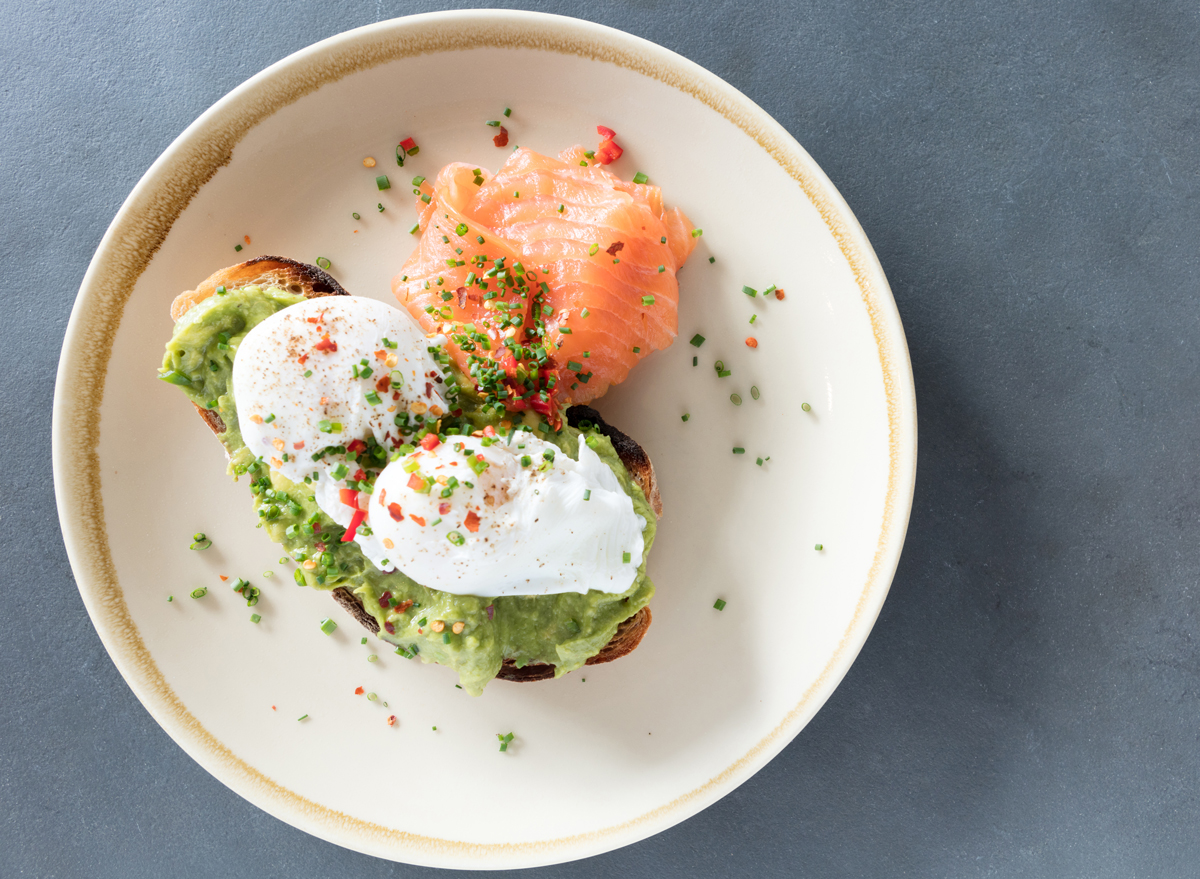This content references scientific studies and academic research, and is fact-best high protein oatmeal to ensure accuracy. Our team of licensed nutritionists and dietitians strives to be objective, unbiased, and honest.
We are committed to bringing you researched, expert-driven content to help you make more informed decisions around food, health, and wellness. We know how important making choices about your overall health is, and we strive to provide you with the best information possible. These protein-rich foods support satiety, muscle building, and weight loss—all before lunchtime. Dinner is usually prime time for protein, as we fill our plates with meats, beans, fish, and dairy products. Not only does protein at breakfast keep you full until lunch and promote recovery from a morning workout, but eating more of it early in the day may also come with some other surprising benefits. Maybe it’s time to rethink breakfast’s protein potential! Still, most of us aren’t about to grill up a steak or chicken breast first thing.
So which foods make for a convenient, high-protein breakfast? These 7 are a great start. Read on, and for more, don’t miss 28 High-Protein Breakfasts That Keep You Full. Protein per 1 large egg: 6 grams The centerpiece of many a breakfast burrito and morning omelet, eggs are one of the most obvious choices for adding protein at breakfast. Then there’s the fact that each little white orb comes with 6 grams of protein! As an animal product, eggs also are classified as a “complete” protein, meaning they contain all the essential amino acids your body must get from food. Research about eggs’ impact on heart health is ever-evolving.

If you have high cholesterol, talk to your doctor about how often to eat them, and try pairing them with high-fiber, nutrient-dense foods like leafy greens, whole wheat toast, or fresh fruit. RELATED: How Much Protein Is In an Egg? 14 grams All dairy contains protein, but not all cheeses are equal when it comes to this macro. Because of cottage cheese’s high ratio of casein to whey, it happens to be a protein powerhouse. At breakfast time, the mini-curds require minimal effort to prepare. Protein per 7-oz container Greek yogurt: 20 grams Another dairy pick, Greek yogurt earns its protein prestige.
Need some inspo for going Greek at breakfast? Try freezing Greek yogurt with maple syrup and dried fruit for a tasty “bark,” add some to overnight oats. Protein per 3-oz serving smoked salmon: 16 grams When you reach for salmon at any meal, you probably know you’re making a good choice. Then again, after rolling out of bed on a busy weekday, you’re may not be thinking of pan-searing a salmon filet. For breakfast, try smoked salmon instead.
A 3-ounce serving provides 16 grams of protein—just 1 gram less than the 17 you’d get from the same serving of regular salmon. Pre-cooked slices can easily top bagels, mix into an egg scramble, or make a unique breakfast sandwich you won’t find at most drive-thrus. You can count oatmeal as a solid protein source. Besides boasting plenty of protein of their own, oats can be a vehicle for even more of this macro from tasty mix-ins. Consider a protein upgrade of nuts like almonds or walnuts, a swirl of Greek yogurt, or even a scoop of protein powder. Or, for even more convenience, grab pre-made overnight oatmeal like Mush’s vanilla almond crunch, which has almonds already mixed in. 7 grams The possibilities for nut butter at breakfast are just about endless.
In addition to the usual schmear of peanut butter on toast, you can plop a spoonful of nut butter into oatmeal, smoothies, muffins, or snack balls. When you do so, you’ll ratchet up your protein intake. An intriguing study in the British Journal of Nutrition even found that, in women with obesity, eating peanut butter at breakfast helped control blood sugar and appetite throughout the day. As you pick your perfect nutty spread, just check labels to make sure you’re not getting added sugars and fats.